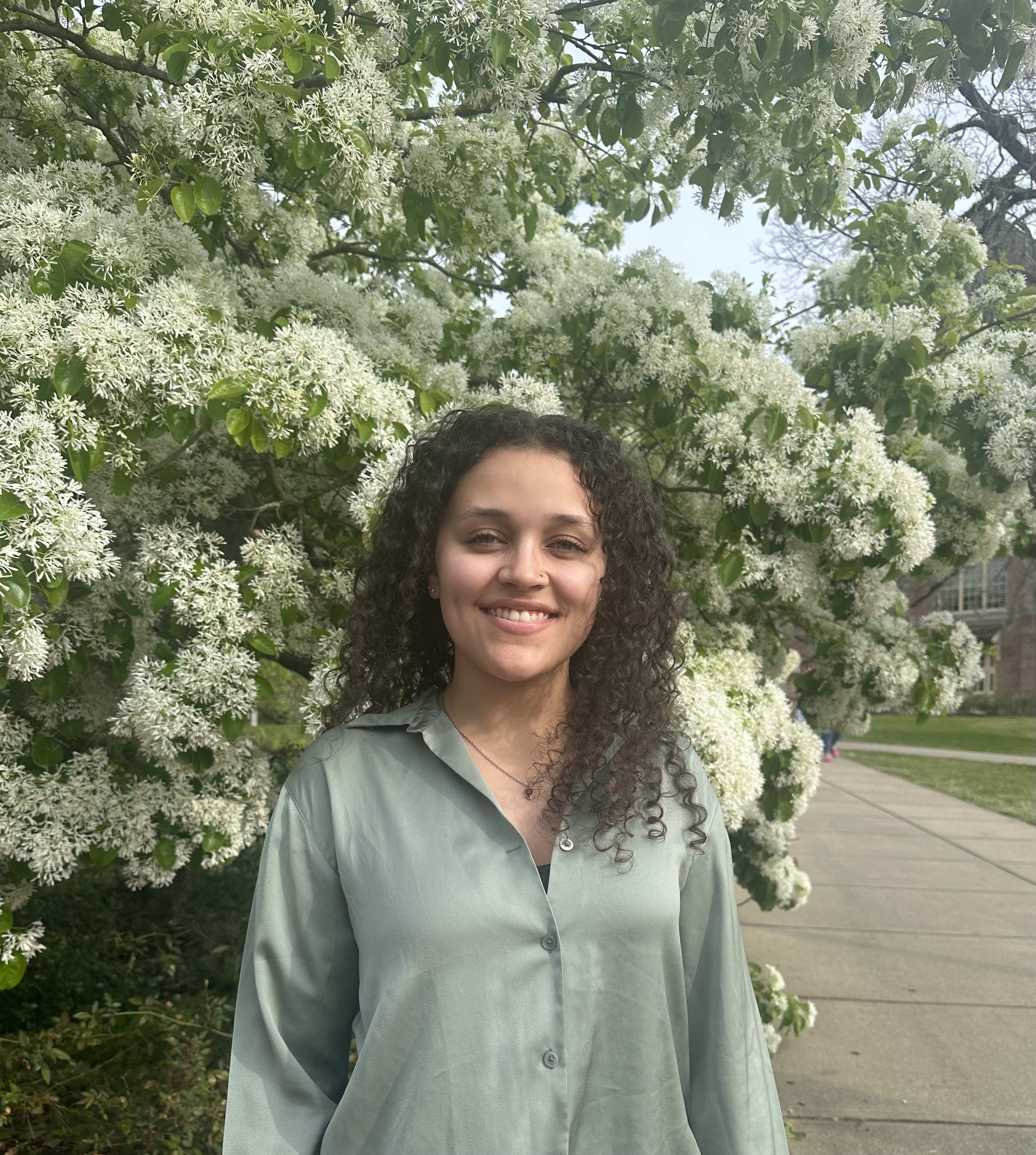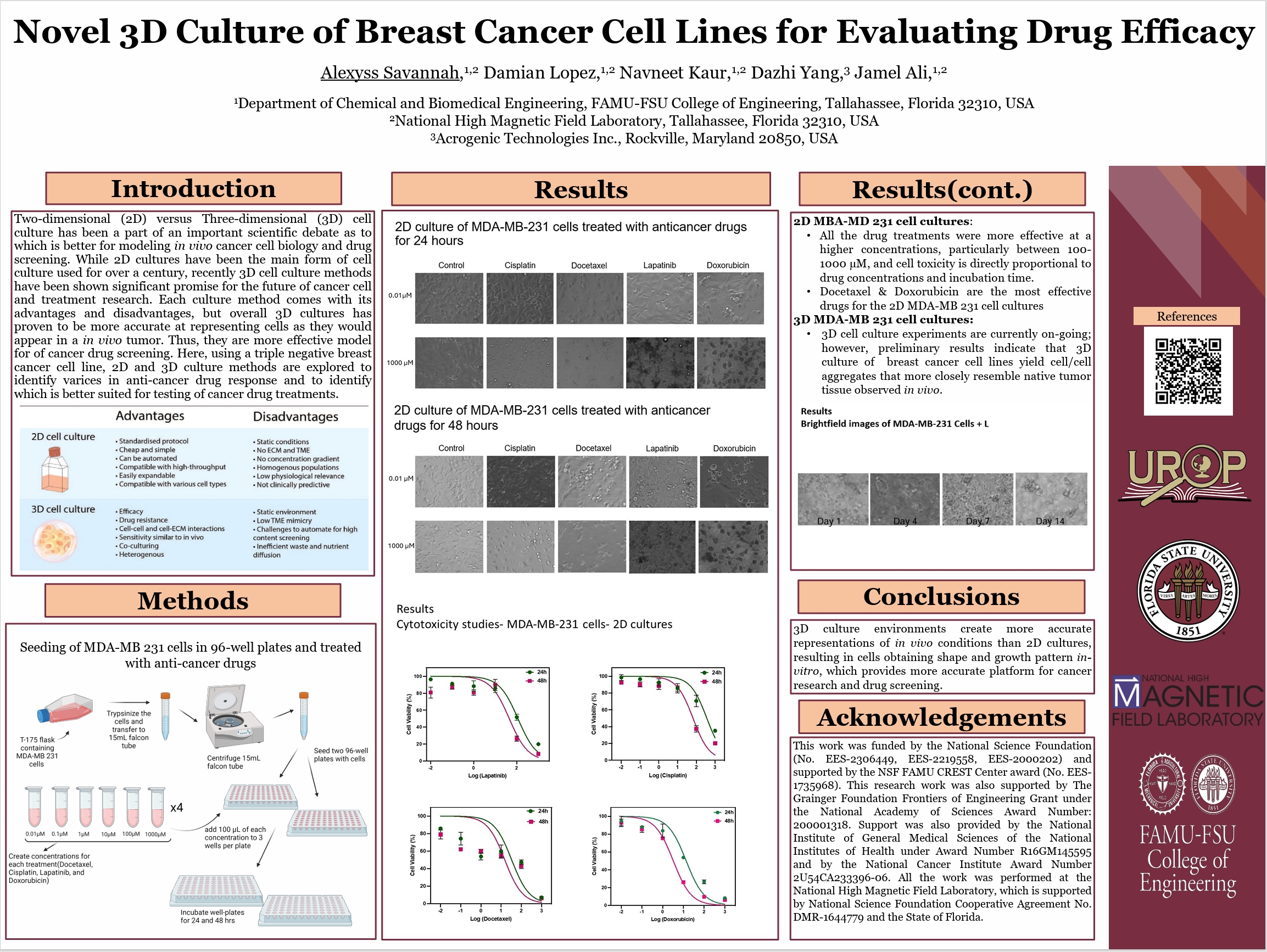Research Symposium
24th annual Undergraduate Research Symposium, April 3, 2024
Alexyss Savannah Poster Session 1: 9:30 am - 10:30 am /337

BIO
Alexyss is a hard-working, dedicated student who constantly strives for excellence. Alexyss' research interests are fairly broad with a specificity towards those pertaining to autoimmune and neurodegenerative diseases, enjoying the challenge that comes with the impossibilities that surround the two.
Novel 3D Culture of Breast Cancer Cell Lines for Evaluating Drug Efficacy
Authors: Alexyss Savannah, Dr. Navneet KaurStudent Major: Biomedical Engineering
Mentor: Dr. Navneet Kaur
Mentor's Department: Chemical Engineering (CHEM_ENG) 214000 Mentor's College: FAMU-FSU College of Engineering Co-Presenters:
Abstract
Three-dimensional (3D) cell culture has emerged as a promising method to produce cancer tissues in vitro that closely mimics the in vivo tumor microenvironment. These model 3D tissues have the potential to provide more reliable data for preclinical studies and can aid in bridging the gap between preclinical and clinical outcomes. In comparison to tumor tissues formed with traditional two-dimensional (2D) culture techniques, cancer cells grown in 3D typically have more physiologically relevant cell morphology, proliferation, longer cell life span, enhanced cell-to-cell interactions, enhanced drug metabolism, and more tumor-like characteristics. In this work, we explore differences in 2D and 3D cell cultures for a triple-negative epithelial breast cancer cell line (MDA-MB 231). We observe enhanced cell growth in a novel micro-fibrous scaffold culture over a longer time span compared to 2D cultures. Clinically approved anticancer compounds, including Lapatinib, Cisplatin, Docetaxel, and Doxorubicin were tested against both 2D and 3D cultures for 24 and 48 hours, after which cell viability was assessed with 3-(4,5-dimethylthiazol-2-yl)-2,5-diphenyl tetrazolium bromide (MTT) assays. We observe that enhanced drug concentration leads to increased cell death in both 2D and 3D cultures, however 2D cultures are more sensitive to all compounds in part due to easier drug access compared to 3D culture where natural cell structure limits pharmacokinetic drug transport, thus attenuating apoptosis. Our results indicate that 3D culture of breast cancer cells with a micro-fibrous scaffold presents an effective platform for investigating cancer biology and drug screening.
Keywords: 3D cell cultures, breast cancer cells, cancer drug treatment testing


